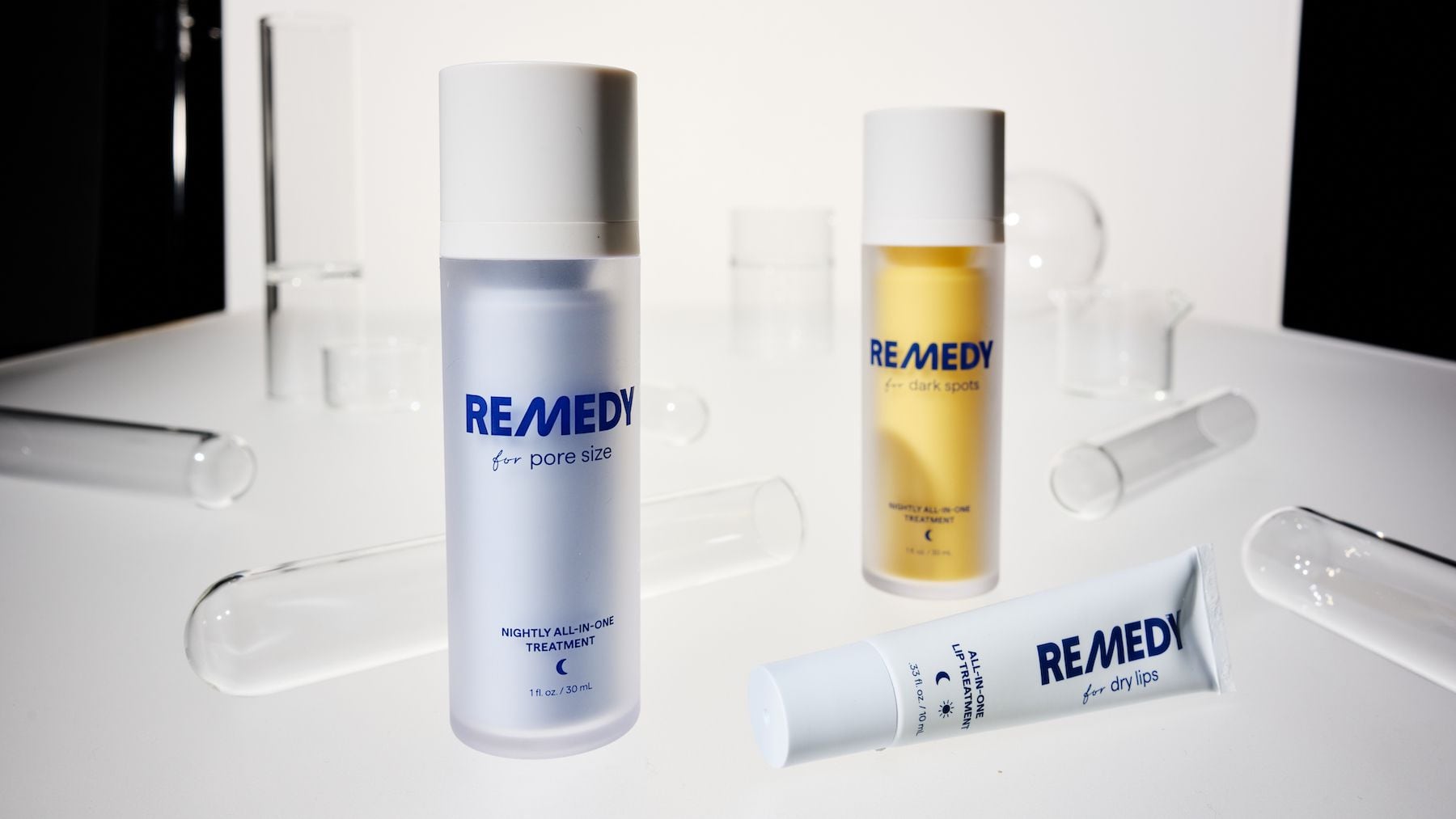
TikTok’s most-followed dermatologist Dr. Muneeb Shah unveiled his skincare brand, Remedy, online on Mar. 19. With over 22 million followers across platforms, including 18 million on TikTok, Dr. Shah’s initial offering is based on his Gen-Z and millennial audience’s top skincare concerns.
Product solutions for dark spots, pore size and dry lips are positioned at a lower price point than most dermatologist lines, and retail from $16 to $38.
“If I turned around and launched a $70 product or $100 product or a $200 product, we’d sell it, and maybe it would even be easier to sell because we would have better margins, but it would be disingenuous,” said Shah, who has worked with affordable beauty brands like CeraVe on sponsored content including its Super Bowl campaign with Michael Cera. “[My] audience would see right through it.”
Geared toward informed skincare shoppers in their 20s and 30s who are fans of lines like The Ordinary, Remedy’s selling point is an emphasis on the “skinimalism” trend replacing multi-step routines. He estimated that his followers are 80 percent female and 20 percent male.
“I started to get more and more feedback from my audience where they’re like, ‘Well, I just bought seven products from The Ordinary because I need all these ingredients to solve my problems. But how do I layer these products?,’ he said. As a result, he’s highlighting the combination of ingredients in each of his items such as the retinol, kojic acid and mandelic acid found in Remedy’s dark spot treatment.
Shah is opting for his own standalone brand rather than a licensing model that has led to short-lived beauty partnerships for other top TikTok influencers. Hyram Yarbro’s brand Skincare by Hyram recently saw an end to its partnership with The Inkey List, while Addison Rae’s Item Beauty was shuttered by Ipsy. Independently owned dermatologist brands, on the other hand, have fared better; Dr. Dennis Gross was acquired by Shiseido late last year.
“I was presented with a lot of different models – incubation models, licensing models. I ended up not going that direction,” said Shah. The brand has one angel investor who has chosen to remain anonymous.
Shah is currently in talks with retailers, he said, and is developing future products based on concerns like hair loss and dark circles.
With the possibility of a dramatic change if TikTok is banned, Shah said his goal for Remedy is to ensure it is not considered an influencer brand.
“Hopefully, people think ‘Remedy’ and they don’t think ‘Dr. Shah.’ That would be a goal for me three to five years from now. If it’s still me that’s driving the brand, then I don’t think we’ve been successful solving people’s problems.”
Learn more:
Checking In on Instagram’s Threads
Usage is creeping back up, but many of the biggest beauty and fashion brands and influencers are still taking a wait-and-see approach to the platform.



